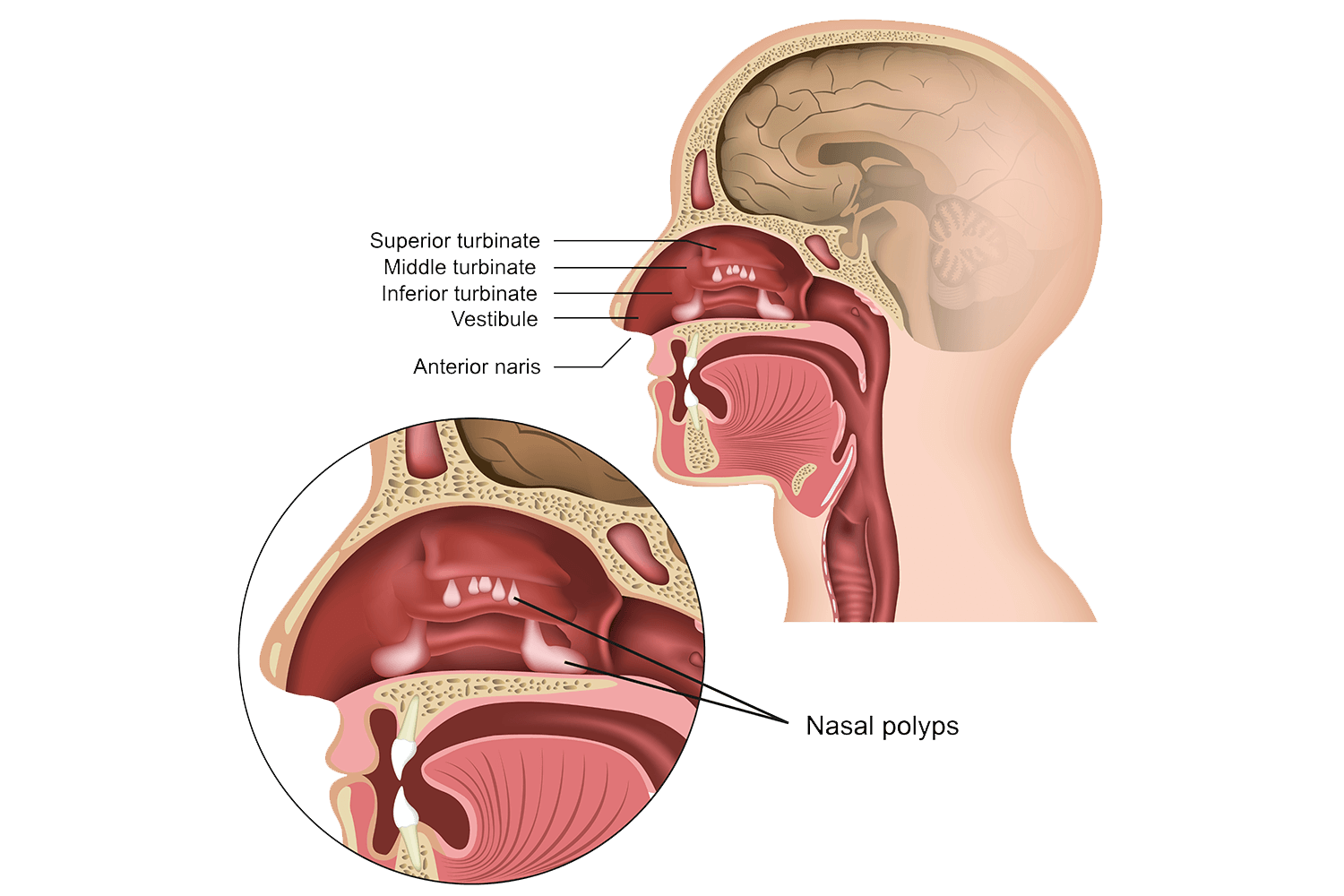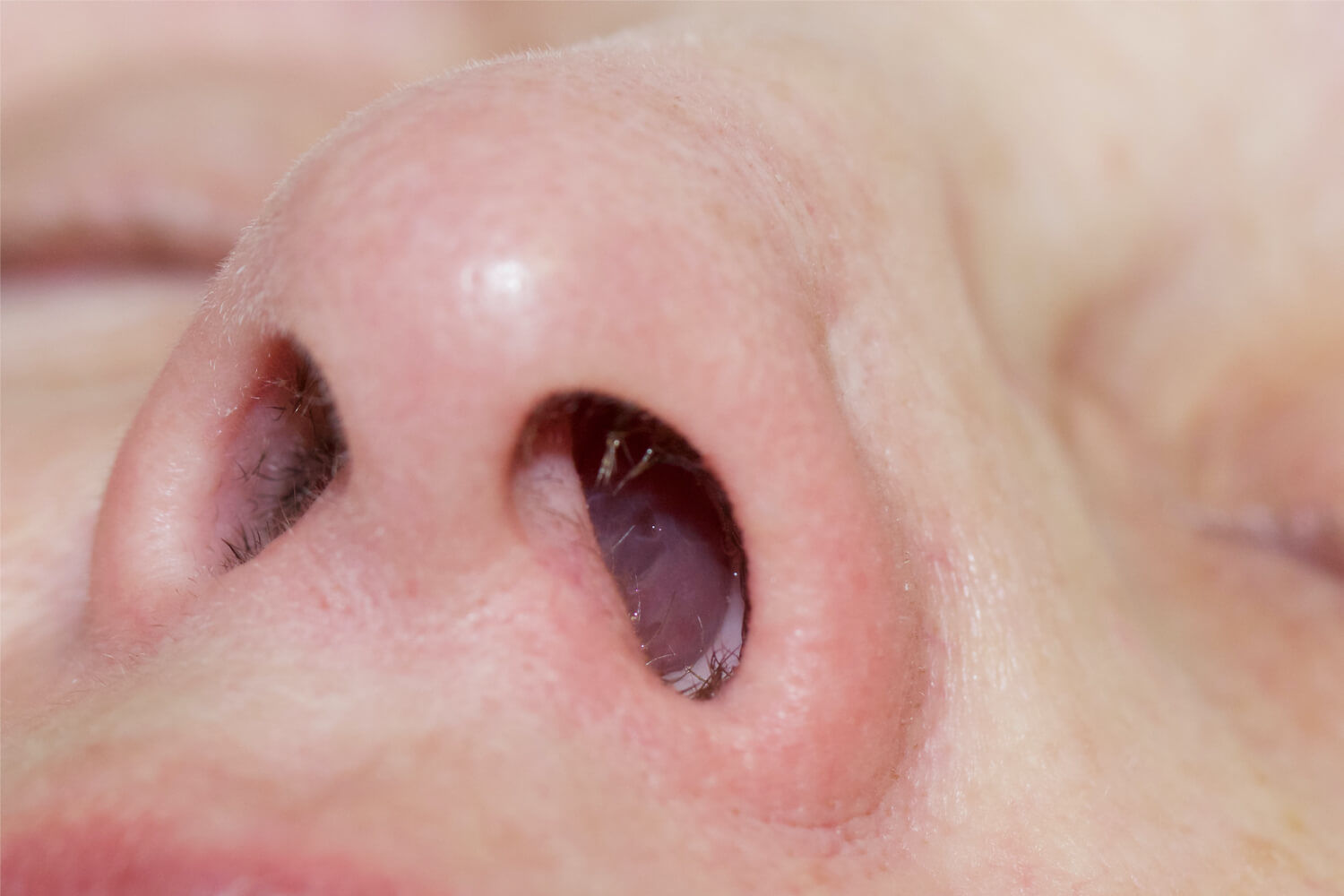What are nasal polyps?
Nasal polyps are benign tissue growths from the mucosa that lines your nasal and sinus passages, and typically have the appearance of peeled grapes. Some nasal polyps are small and cause no symptoms, while others can take up a significant amount of space and block the normal drainage pathways of your sinuses. This can lead to nasal congestion and persistent sinus infections. Unlike polyps in the colon, nasal polyps in the nose do not cause cancer.
What causes nasal polyps?
Nasal polyps are thought to be caused from chronic inflammation within the nose from a variety of a causes. In some patients, nasal polyps are directly linked to asthma or a genetic sensitivity to salicylates (aspirin). In many others, a severe sinus infection may trigger a chronic inflammatory process that allows nasal polyps to develop. In general, people susceptible to developing nasal polyps possess an underlying irregularity in their immune system. Nasal polyps are more common in adults and men. When found in children, nasal are concerning for cystic fibrosis.
What symptoms are caused by nasal polyps?
There are many potential symptoms caused by nasal polyps, including:
- Nasal congestion
- Chronic sinus infections
- Post-nasal drip
- Facial pain or pressure
- Wheezing, or tightness in the chest
- Changes in smell or taste
How do you treat nasal polyps?
Management of nasal polyps is dependent on the severity. Smaller or less extensive nasal polyps can be treated with topical nasal sprays, which will help them shrink or disappear completely. When polyps are much more extensive, medications are generally ineffective and require surgical removal along with more extensive sinus surgery. This will allow your symptoms to dramatically improve, while giving your nasal passages more room for your prescribed medication to work. It is important to know that removal of nasal polyps as a standalone treatment plan will not cure them. As long there is a constant inflammation within the lining of nose, the polyps will always come back over time. For this reason, keen attention to the underlying cause of the inflammation and addressing it specifically will be the only way to prevent nasal polyps from returning.



